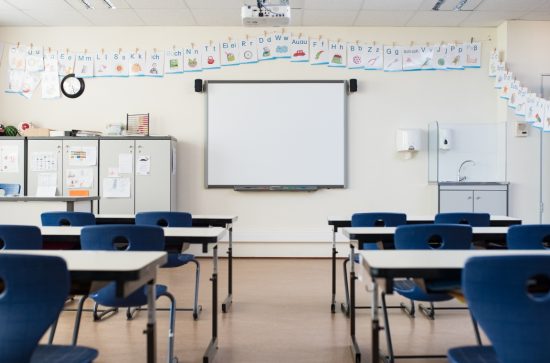
New research from Maynooth University sheds light on the vital yet often underappreciated role of deputy principals in Irish primary and post-primary schools.
The study, titled Deputy Principals: A Hidden Asset in Irish Schools? was carried out over the course of 18 months in 2023/2024 and provides a detailed examination of how deputy principals perceive their responsibilities and how these roles are enacted in diverse school contexts across Ireland.
The research, led by a team from Maynooth University's Department of Education, surveyed 120 deputy principals (49 primary; 71 post-primary) through online questionnaires and conducted in-depth one-hour interviews with 10 participants (5 primary; 5 post-primary).
This comprehensive approach provided rich insights into the challenges, satisfactions and complexities of the deputy principalship.
The study, supported by funding from the National Association of Principals and Deputy Principals (NAPD) and the Irish Primary Principals’ Network (IPPN), identifies deputy principals as critical assets in schools. However, their roles are often overshadowed by a lack of explicit recognition in educational leadership discourse.

“Our research highlights that deputy principals are much more than operational managers -- they are pivotal leaders in shaping the culture, curriculum and wellbeing of schools. Yet, their contributions are often undervalued. This report is a call to action for systemic change to ensure that these hidden assets in our education system are fully supported and recognised.”
Key findings from the study include:
1. Logistical maintenance and administrative challenges
Deputy principals play a vital role in the day-to-day operations of school, from ensuring seamless logistics to implementing Department of Education initiatives. One participant described their role as a series of “unfinished conversations”, reflecting the time-consuming and reactive nature of their responsibilities.
2. Pastoral care and behavioural oversight
Monitoring student behaviour and providing pastoral support is a core and deeply fulfilling aspect of the role. One post-primary deputy highlighted the satisfaction of “seeing [a student] develop and grow into a young person”.
3. Fostering relationships and teamwork
Building strong relationships with principals, staff and other stakeholders is essential for shaping positive school cultures. However, deputies often feel that their own wellbeing is overlooked despite their integral role in supporting others.
4. Curriculum leadership under pressure
Deputies play a pivotal role in driving curriculum innovation and adapting to changes, such as the upcoming Senior Cycle redevelopment and the €12 million funding announced for revised science subjects. However, immediate demands frequently push curriculum leadership down the priority list.
5. Unique and multifaceted responsibilities
Each school presents a unique context, and no two deputy principals perform the same tasks. In primary schools, over 90% of deputies are also class teachers, with many doubling as Special Educational Needs Coordinators (SENCOs). One primary deputy described the SENCO role as “mediating the failures of the system to parents”, underscoring the emotional and administrative burdens deputies often face.
The report highlights the lack of precise role definition as both a frustration and a source of flexibility, allowing deputies to adapt to their school’s unique needs. However, the researchers stress the need for systemic support to address the unsustainable workloads and emotional pressures associated with the role.
The study also points to the implications of these findings for aspiring deputies and those involved in the selection and appointment of school leaders. It calls for a re-evaluation of the deputy principalship to harness its full potential as a vital asset in Irish education.
In September 2024, a stakeholder event hosted by Maynooth University brought together educators, policymakers, and sector representatives to discuss the report’s findings. A recurring theme was the lack of administrative support for the complex management of modern schools, which falls on senior leadership teams, adding to their already significant workload.
The release of this report coincides with broader national conversations about senior cycle reform, the integration of children with additional educational needs and the evolving challenges facing Irish schools. The findings offer a timely reminder of the critical role of leadership in navigating these changes.
